New Breath Foundation (NBF) invests in organizations run by and supporting AANHPIs with some of the greatest potential. We hope that by sharing their stories, you’ll be inspired to Unleash Your Greatest Giving Potential. We will highlight four inspiring individuals within the NBF community who have either been directly impacted by incarceration or have loved ones who have. These individuals are driving remarkable change in their communities, and we invite you to join us over the next several weeks as we share stories about their transformative work.
Please consider making a gift and sharing their stories with others.
Mike Madrilejo of API Rise

My name is Mike, and I’m a Senior Program Specialist with API RISE in Los Angeles. Working with API RISE gives me the chance to support formerly incarcerated individuals like myself as they reenter society. My own experience of reentry drives me to help others navigate the challenges they face upon returning to their communities. By being a stable presence through listening and being available, I support justice-involved individuals, many of whom face anxiety, lack of resources, and social stigma when they first reenter. My main focus when I support others is to empower them to lead their own lives—to help them figure out how to be the stars of their own movies rather than me being the director.
Affordable housing is a key aspect of reentry support. Unfortunately, some reentry programs are starting to look more like businesses, charging people who’ve just come out of prison full rent with the little money they’ve saved. This goes against the essence of restorative justice, which should focus on healing, not profit. We often use our own personal networks to help peers find affordable housing or help them with other documentation like reference letters, to secure housing. My friend and I are in the process of buying a property where we plan to offer affordable, temporary housing to newly released individuals. For the first three or four months, they’ll pay only enough to help cover basic costs while they look for a stable place for themselves and their families. I hope to contribute to and support my community by offering this transitional housing.
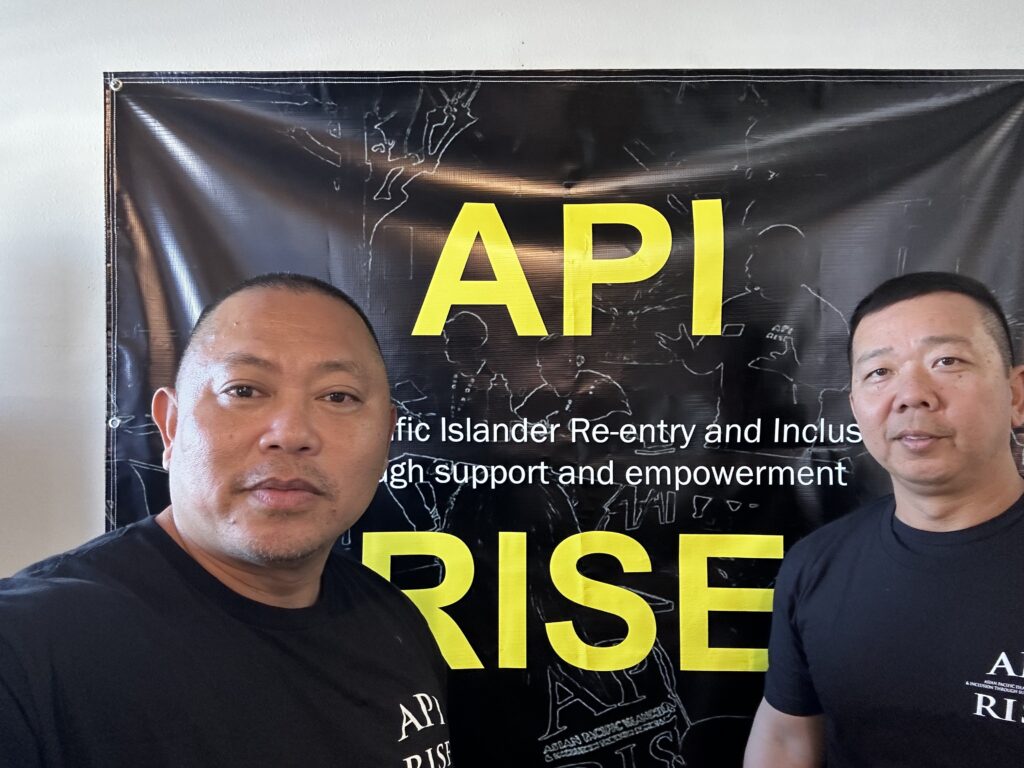
Beyond practical support, I also work to change public perceptions. Formerly incarcerated people are often judged solely by their pasts, which can be disheartening. At first, I would either want to hide or overcompensate. I would work 60 hours a week just to prove my worth, even though my pay was only for 40. Having realized that my value doesn’t come from external factors or others’ judgment, I help others reclaim their self-worth without feeling pressured to prove themselves constantly.
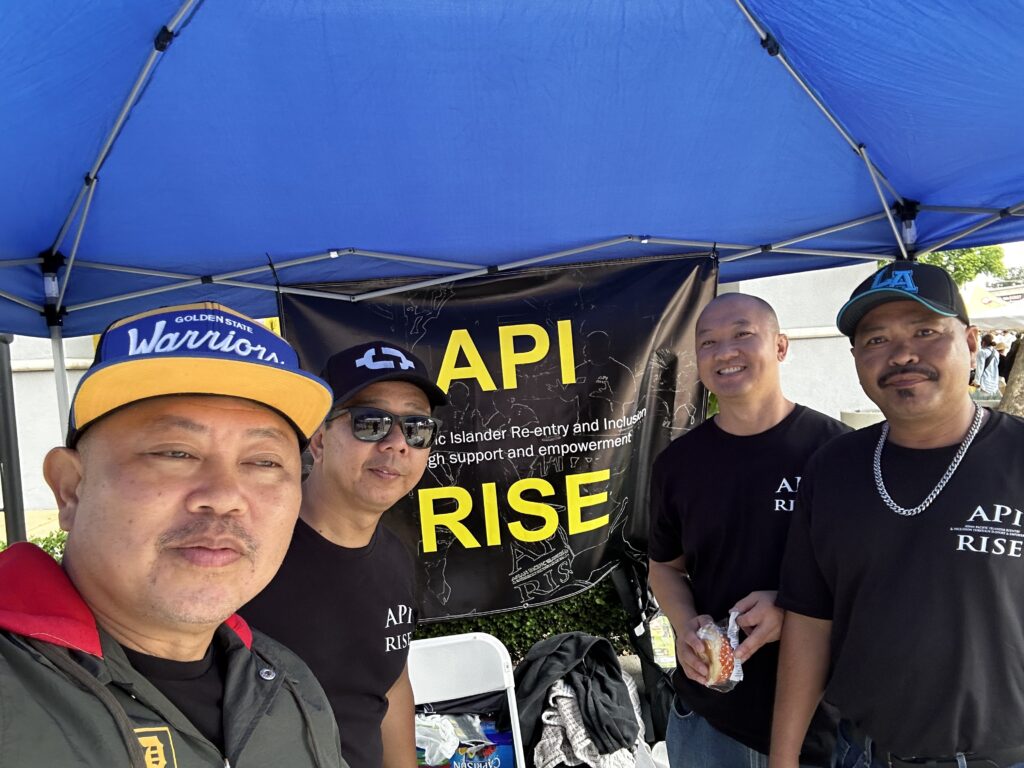
Throughout my work, I remind my peers that restorative justice is a process. We are an active force in restorative justice and our participation is required to heal. Our recent 10th Anniversary event illustrated this, as some peers hung back, hesitant to engage. These are all familiar feelings and behaviors to me– embarrassment and fear. I reminded them that it’s okay to feel these ways and that it’s important to challenge ourselves to step into community and practice away from those barriers. I encouraged them to participate and embrace the support around them, which is a crucial practice when rebuilding our lives.
At API RISE, we advocate for Reentry and Inclusion through Support and Empowerment. I’m here to create spaces for healing, where formerly incarcerated people can feel empowered to restart, build, and lead healthy lives in healthy communities. I’m committed to making sure that my peers have the tools they need to thrive in society and, ultimately, to help rebuild our communities for the better.

Michael, of Filipino descent, originally hails from the Bay Area but now considers Los Angeles his home. He joined API RISE in 2017 and began his journey as a part-time reentry specialist, eventually transitioning to a full-time Senior Program Specialist role. Despite encountering challenges during his upbringing that resulted in some difficult decisions, Michael has persevered, striving to overcome his past and create a better future for himself. His current focus is on giving back to his community, and in 2024, a graduate student in Sociology at Cal State Los Angeles with the goal of using his education to serve the API community.
Rhummanee Hang of AYPAL
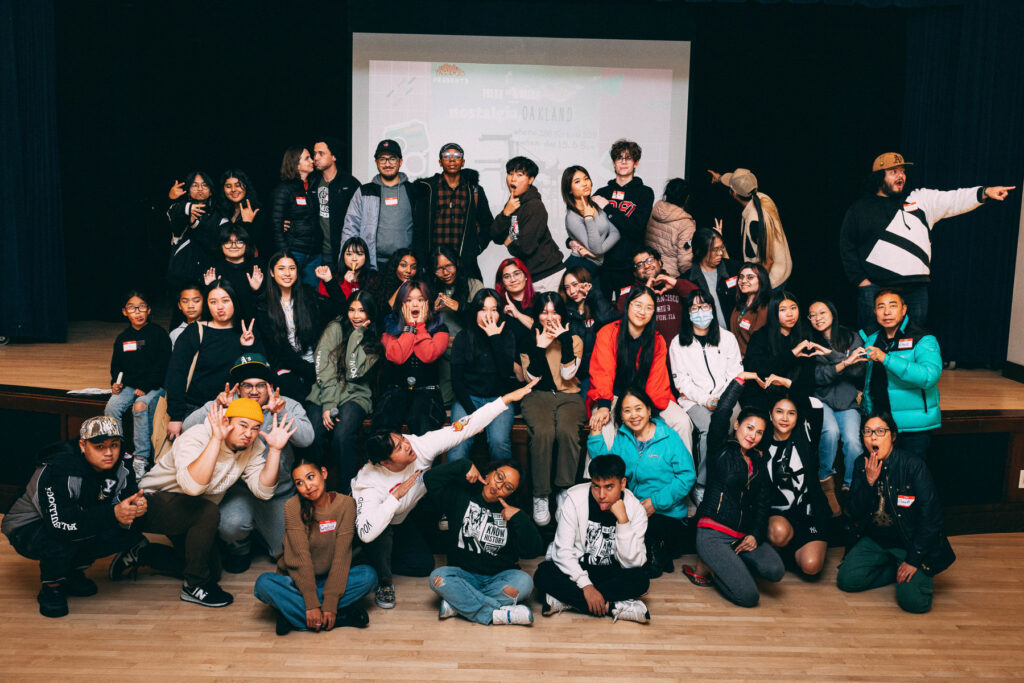
Born and raised in Oakland (Ohlone land), I’ve been surrounded by a strong sense of community organizing since my youth. I am a daughter of Cambodian refugees who arrived in the U.S. in the 80s. As a second-generation Khmer-American, my deep love for the Bay Area and my ancestral home led me to community organizing through arts activism.
My introduction to arts activism was around 13 or 14, when I began attending classes at Destiny Arts Center in Oakland. Destiny exposed us to a lot of different types of dance. I had foundations in hip-hop, jazz funk, and modern, and had the opportunity to learn Afro-Haitian and West African dance. What started as dance lessons quickly grew into something much larger. By eighth grade, I joined their youth performance company, where we collaborated to create full-length original productions. These productions, co-created by us, explored personal identity, community, and social justice issues. Through Destiny, I first experienced how art could be a vehicle for community organizing and activism.
Some of my first shows were rallies at Books Not Bars events, campaigns advocating for the divestment from prisons, and community reinvestment. Though we, as youth, weren’t leading the marches, I realized our significant role as young artists in affecting change. I was also able to learn about community issues through theater, dance, and storytelling, which gave me a deeper understanding of my own context in the grand scheme of things. Art also allowed me to express my response to these personal community issues.
My passion for community and art carried me through high school and beyond. At UC Davis, I found ways to stay connected to art and activism. I worked with youth in Sacramento, focusing on ethnic studies and direct service programs. Wherever I went, I sought spaces centered around building community and connecting through art. To this day, I express myself through my artistic practices of writing poetry and dancing and recently co-produced a show with a dance company I am a part of.
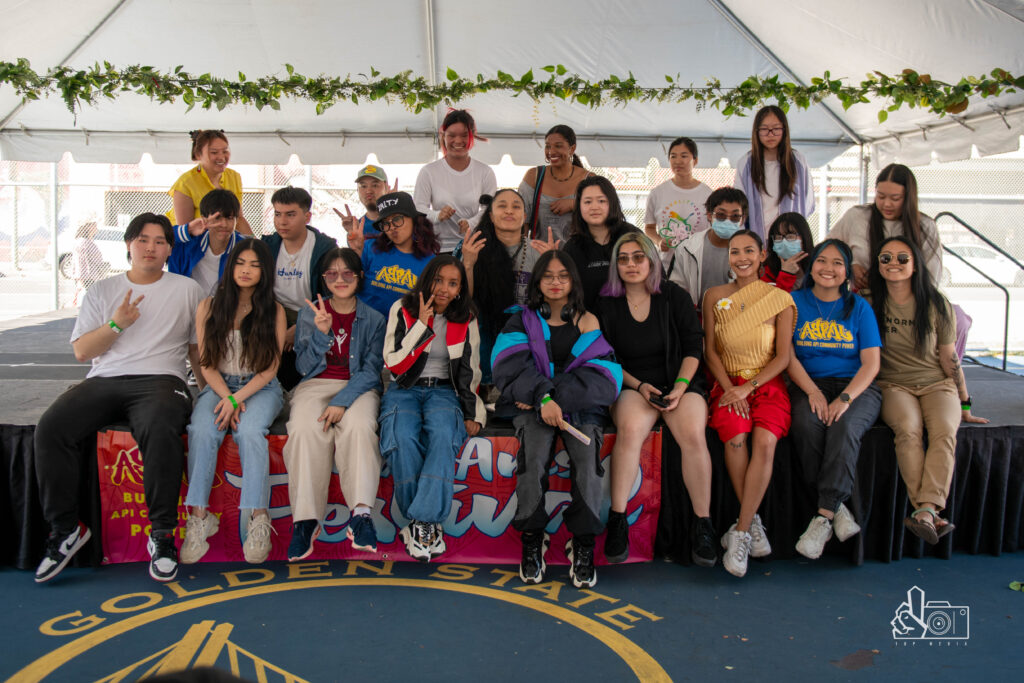
Since November 2019, I’ve had the privilege of serving as Co-Director at AYPAL, a youth organizing and movement-building organization dedicated to empowering Asian and Pacific Islander (API) youth in Oakland. My path to this role and the philosophy I bring to it are shaped by years of experiencing how art and activism intersect to create powerful change.
AYPAL has been at the forefront of youth organizing in Oakland since 1998. We practice political education, leadership development, and arts activism with youth in Oakland, and our broader mission is to build the next generation of movement leaders. One of this year’s campaigns supported Measure QQ, allowing 16- and 17-year-olds to vote in their school board elections for the first time. AYPAL, in coalition with 4 other Oakland youth and community organizations, worked to organize ballot drop-offs and candidate forums. It was rewarding to see our youth organize and watch some of their concerns being directly addressed. We also organize regular events like Fresh Off the Block, an annual visual arts showcase, and the May Arts Festival, which celebrates AAPI Heritage Month with performances in Chinatown.
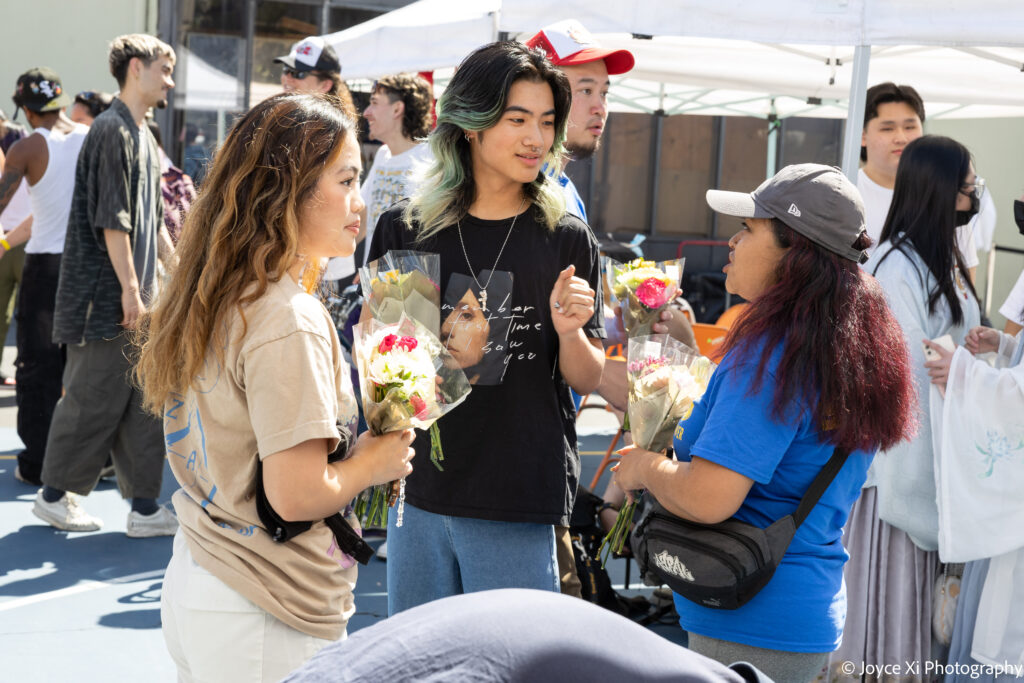
Through all my work, I want to give back to my community, and that can take many forms beyond monetary support, whether through volunteering time, energy, or other resources. Your contributions, in whatever form they are, matter. It’s most important to show up in the ways you can, which requires self-reflection of your capacity. I make it a personal practice to set aside funds to support organizations and individuals whose work I believe in. I also seek to give my time, whether it’s through mentoring young leaders or collaborating with teaching artists.
My journey and past experiences have shaped my drive to give back to my community. With my knowledge and privileges, I have a personal responsibility to myself and the next generation. As I watch my child grow and and as I work with youth, I think about the kind of world I want to leave for them and how I can do this work sustainably for all.
Oakland faces many challenges, from gentrification to safety concerns, and addressing these issues requires a collective effort. At AYPAL, much of our work begins with laying a foundation of shared understanding and unpacking concepts like systemic inequality to help youth see their role and how things are related in shaping their neighborhoods and futures. I want to create and support holistic spaces that foster youth leadership and movement building so that young people have the skills, critical thinking, and drive to build power and make the changes necessary to contribute to healthy, safe, and thriving communities. Our youth are more than capable of understanding the complexities of the world around them and making decisions that drive meaningful change. My role is to listen and support them. Witnessing young people step into their power has been a reminder of their immense capacity for leadership. Through my own experiences, I know they are not just the leaders of tomorrow—they are the changemakers of today.
- Learn more about AYPAL on their website (www.aypal.org) and connect with them on Instagram (@aypalpower)
- Follow Rhummanee’s journey by subscribing to her personal newsletter at www.rhummanee.com
- Rhummanee’s writing is featured in Asian Prisoner Support Committee’s Arriving: Freedom Writings by Asian and Pacific Islanders Behind and Beyond Bars. You can purchase a copy here.
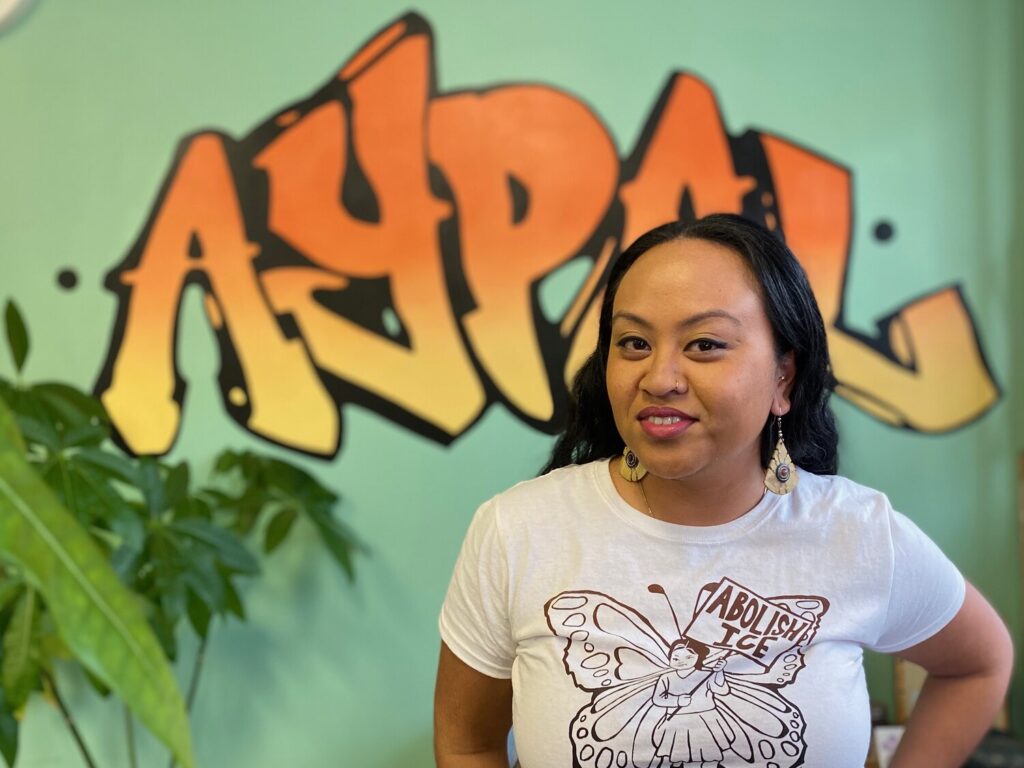
Rhummanee is an artist, organizer, and facilitator dedicated to storytelling through the lens of a diasporic Khmer-American woman. As a daughter of Cambodian refugees who settled in the U.S. in the early 1980s, Rhummanee was born and raised in Oakland (Ohlone land), where her love for both the Bay Area and her ancestral roots sparked her journey into arts activism and community organizing.
Currently, Rhummanee serves as Co-Director of AYPAL, a leadership development and community organizing organization that empowers Asian Pacific Islander youth in Oakland. Her work integrates the arts to advance social justice, a passion she has pursued since her youth. In addition to her organizing work, Rhummanee is a doula who is learning and practicing traditional Khmer postpartum care.
Les Estrella of Going Home Hawai’i

I overcame homelessness, substance abuse, and mental health challenges in my own journey. Having confronted these hardships, I’m passionate about creating and supporting nonprofits and housing programs that care for people with similar experiences.
As the president and CEO of Going Home Hawai’i (GHH), I am dedicated to helping justice-involved individuals safely and sustainably reintegrate into our communities. With 25 years in this field, I focus on clean and sober housing*, community organizing, and coalition building for organizations at various stages in their journeys.
I spent 20 years in Honolulu, where I struggled through a lifestyle of drugs, homelessness, crime, and jail. During this time, my children, who were living with their mom, were abused by their stepfather. Two of my younger kids ended up in foster care, and my oldest daughter eventually came to live with me. When a social worker called to inform me of what had happened, it was a turning point—I had to change my life and get my kids out of the system.
I returned to Hilo and started navigating the court system. It was a tough process, especially as a single dad in the late ’90s and early 2000s when it was rare for fathers to regain custody. But in the end, I was able to bring my kids back home. Today, I’m grateful to say that all of them have overcome severe trauma and are thriving with families of their own.
That experience made me realize the importance of understanding the system—not just for myself, but to help others. I became involved with my church, started working with addiction recovery groups, and then joined social services at the Office of Social Ministry (now HOPE Services Hawai’i). I had a choice to go back to the automotive field or embrace a new path of supporting others. Driven by my own journey, I chose to help others see that change is possible, even through our system’s challenges.
Hawai’i faces unique challenges:
- Native Hawaiians are disproportionately represented in the criminal justice system, linked with broader issues in poverty, education, and lack of affordable housing.
- Native Hawaiians make up over 40% of the justice-involved population, highlighting a cycle of systemic issues.
In response, we’re expanding our work to support youth and prevent their entry into the justice system (a “deflection” approach). GHH’s consortium includes strong partnerships focusing on youth programming, addressing the school-to-prison pipeline, and creating early interventions.

One challenge justice-involved individuals face is countering the stereotypes and misconceptions that surround us, which are often reinforced by misinformation on social media. Through our justice-lived experience advisory group, composed of “lived experts,” we share true stories of resilience and transformation, directly challenging these stereotypes. Who knows the challenges of the system better than those who have lived it? By giving these voices a platform, we hope to shift the narrative away from a “them” mentality and towards a united “us,” changing how people view justice-involved individuals as community members.
At the heart of our work is the “second chances” movement, where we believe that people can and do become well again (not just from second chances, but from many chances). Substance use, mental health disorders, homelessness, and housing insecurity are not simply social issues; they are fundamentally healthcare issues tied to disparities in access to care. Our current punitive justice system is broken, focused more on profit than on rehabilitation, which makes issues worse for already marginalized groups, especially Native Hawaiians. The deep divide between rich and poor is intensified by corporate greed and systemic inequities. For our communities to heal, we need true healthcare at the community level, addressing social ills rooted in wellness and prevention. Sick care is in the hospitals. Health care is in the community.
Our Pu’uhonua Wellness Centers in East and West Hawai`i are spaces where justice-involved individuals can access re-entry recovery housing and supportive services. In all our work, we strive to reconnect individuals to their sense of self and the community and to create room to reflect on what it means to be e ho`okanaka—” person of worth.” We do not become people of worth; we already are.
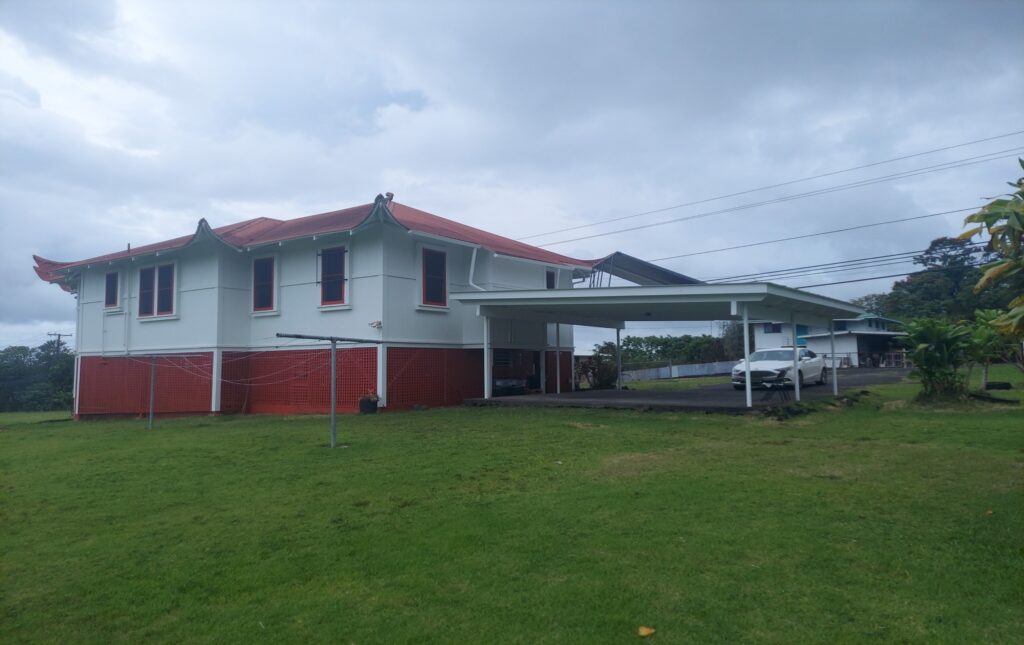
As we look toward the future, we’re fortunate to work alongside organizations, community partners, and community members who desire to make a difference. It’s not the work of one person; it’s about organizing our collective energy and direction for a meaningful impact. Through our consortium, we’re building a more supportive future where every member of our community has the opportunity to embrace their worth and purpose.
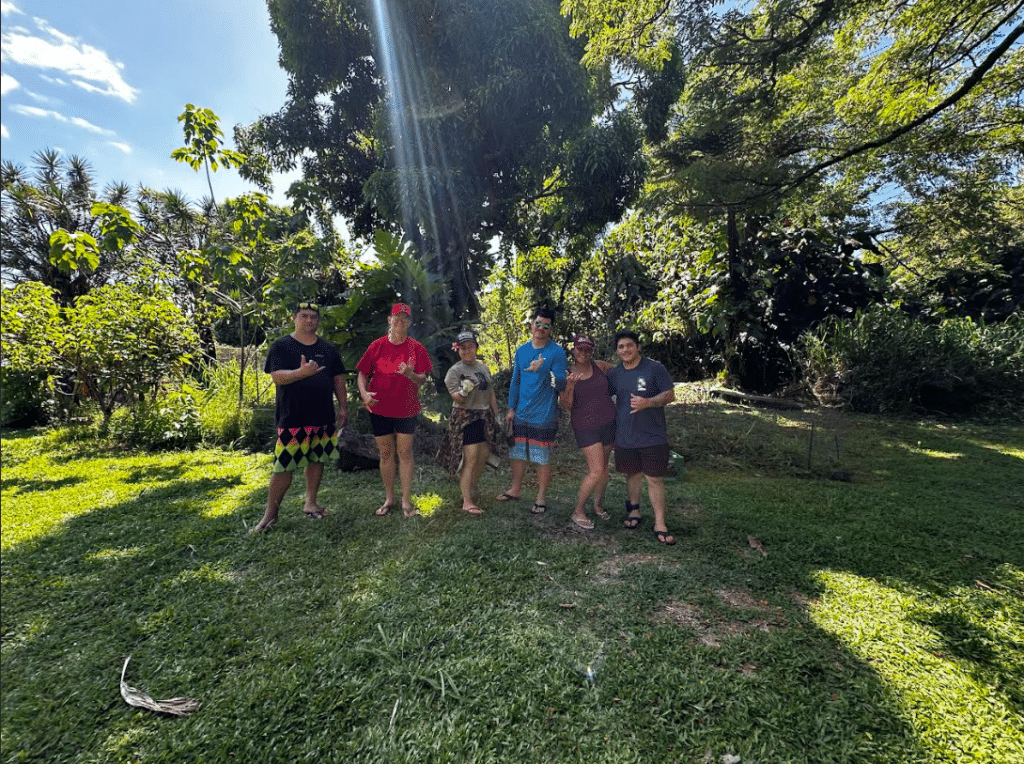
*”Clean and sober housing” refers to housing that is intended to provide a stable, independent environment of alcohol- and drug-free living conditions to sustain recovery and that is shared by unrelated adult persons who are recovering from substance abuse as described in §11-178-7. (hawaii.gov)

Lester “Les” Alfred Estrella, born and raised in Hilo, has four children and six grandchildren. After studying auto mechanics and machine technology, he spent 20 years in Oahu’s automotive industry before returning to Hilo in 1999 to pursue social services. With over two decades of experience at the intersection of homelessness and the criminal justice system, Les is a recognized leader in reentry, restorative housing, and community reintegration strategies.
As Executive Committee Chair of the Hawai’i Island Going Home Consortium and founder of Going Home Hawai`i (GHH), Les is committed to supporting justice-involved individuals and those impacted by substance misuse, mental illness, and homelessness. His lived experience enriches his approach to building effective reentry programs and supportive housing systems.
Pheng Seng of Unrivaled

As a returned citizen, I work to improve my community and the people around me. Growing up, the lack of resources and challenging environment contributed to many community members, including myself, getting caught in the school-to-prison-to-deportation pipeline. With a better and more personal understanding of these issues, I’m driven to make a positive impact.
I organize back-to-school giveaways, food drives, block cleanups, and voting initiatives to support our community. I was also the former president of the Southeast Asian Vendors Association of FDR Park, where we came together to build up local businesses and create opportunities.
My screen printing shop, Unrivaled, in South Philadelphia is the first Cambodian-American-owned unionized shop in the area. We hire returning citizens and other community members who have difficulty finding work due to their histories. This shop is where people caught up in the system can find a job and start rebuilding. We help put money in their pockets and feed their families. Sometimes, it’s rough for the shop, too; we don’t get certain jobs because of our histories. It can be frustrating, but we continue to move forward.

Our community still lacks education and resources, affecting people from many backgrounds. We’re Cambodian, Lao, Vietnamese, Chinese, Nepalese, and African American. Most of us grew up in the same neighborhoods, went to the same schools, and, unfortunately, got caught up in the same system. When people think of our backgrounds, they often assume the worst, but we’re not criminals. We’re just people trying to turn things around. Even now, I still feel like I’m being judged in certain contexts, and it’s a reminder of the barriers we’re up against. I want to vote and fully participate in civic engagement, but my status prevents me from doing so. Still, I help organize voting efforts because it’s important.
To me, unleashing your greatest giving potential means having the courage to speak my truth despite the fear and limitations I face. The threat of deportation hangs over my head, which makes me careful about how I share my story. I don’t want to offend anyone, but speaking up and advocating for change can make people uncomfortable. However, we must create better resources and future opportunities for our youth.
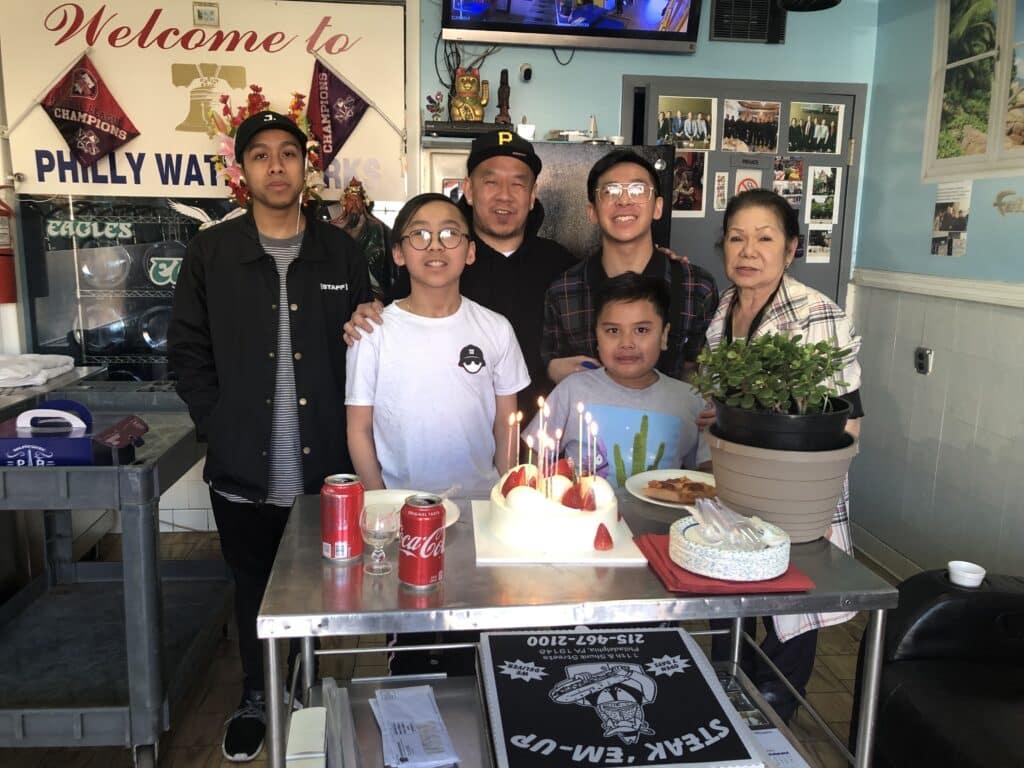
When people ask how they can support me, I’m often unsure how to answer. I’m just grateful to be outside, free, and surrounded by great people. But if I could ask for one thing, it would be support to help build economic opportunities in our community. I aim to strengthen our resilience and show folks that change is possible. I hope to receive a presidential pardon so I can reclaim my citizenship, vote, and further my education. I’d like to represent my community in a city or government role, where I can be at the table where decisions are made. This would allow me to bring valuable resources and information back to our community, helping to break the cycle that holds so many of us back. I want to be a positive example of how a person impacted by the system can change their life and make a difference.

Pheng Seng, a Cambodian American in South Philadelphia, arrived in the U.S. at the age of 5 months. Despite facing barriers due to having a record, he co-founded Unrivaled, a custom screen printing business, during the pandemic. With support from the city of Philadelphia, Seng embraced entrepreneurship and was the former president of the Vendors Association of FDR Park. In 2022, he also received the Mayor’s Philly Hero Award for his advocacy of the Khmer community.
Through his work, Seng actively gives back to his community. His goal is to empower the community and leave a foundation of opportunity for future generations, even as he faces potential deportation.
